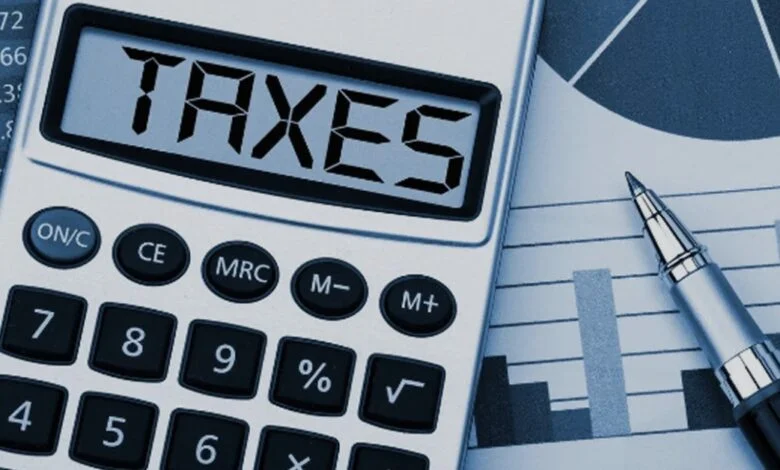
The proposed finance budget for 2024–25 fy25 continues a familiar pattern: a missed opportunity to expand the tax base and include all economic segments. Despite promises, the finance minister’s measures fall short. There are inadequate efforts to address the undocumented economy, focusing instead on raising taxes for current taxpayers.
New tax measures will heavily burden the salaried class, especially mid-management and technical professionals, adding to the strain of inflation and reduced take-home pay. The significant increase in tax rates for middle-income individuals, combined with decreasing purchasing power, will likely drive more talent out of Pakistan.
Also Read: Sales Tax To Apply To Private Schools, Hospitals, And Doctors In Sindh
Also Read: The Government Has Introduced A Fixed Tax Of Up To Rs. 1.5 Million On Residential Plots
The government overlooks potential unpaid taxes in several sectors, opting to overburden current taxpayers. Over the past five years, more than 100,000 highly skilled and qualified individuals have left the country, with numbers doubling from 2018 to 2022 and continuing to rise in 2023 and 2024.
Hardworking taxpayers bear an unfair share compared to other sectors. The salaried class contributes more than their fair share, often more than exporters and retailers combined. For instance, the salaried class contributes Rs375 billion annually, while the estimated 3.6 million retailers pay only Rs4-5 billion.
Certain sectors, like wholesale and retail trade, real estate, service providers, non-corporate businesses, builders, and transport, have significant potential to contribute to the national exchequer but often avoid taxes. The agricultural sector, contributing 20 percent of the GDP, pays less than 1 percent of total income tax. Meanwhile, the salaried class pays 200 percent more in taxes than exporters and retailers.
The real estate sector has an unpaid potential of Rs500 billion, and wholesale and retail businesses have an unpaid potential of Rs234 billion. The top contributors to withholding taxes are contractors, bank depositors, importers, and salaried individuals. Despite an ambitious revenue target of Rs12.9 trillion and a GDP growth target of 3.6 percent, the steps to bring retail and wholesale trade into the tax net are insufficient, and agricultural income remains untaxed.
The federal government often deflects responsibility for agricultural income taxes to provincial authorities, calling it a ‘provincial matter.’ However, if agricultural income is untaxed at the provincial level, the Federal Board of Revenue (FBR) can tax it as unexplained income or assets.
The government continually ignores unpaid tax potential across several sectors while choosing to overburden existing taxpayers
Our tax system is complex and daunting, with businesses paying over 50 percent of their profits in taxes and levies, complicating the withholding tax regime. There are no significant incentives to expand local manufacturing for import substitution and export growth. Some proposed measures make business transactions expensive for non-filers, but there is no evidence that this increases the tax base significantly.
While compliant businesses bear a heavy fiscal burden, a parallel economy evades taxes. The Overseas Investors Chamber of Commerce and Industry (OICCI) highlights that such measures negatively impact exports and foreign exchange reserves. Pakistan’s investment-to-GDP ratio fell to 13 in FY24, its lowest since 1972-73, and is the lowest among peer economies.
Revisiting high taxation is crucial. Measures like removing the super tax on corporations, reducing income tax rates to match the regional average, and simplifying withholding tax processes can help. Foreign investors bring financial contributions, international expertise, technology, and job opportunities. However, profit limitations and business complexities may drive them away. Tax authorities should prioritize an investor-friendly environment and a taxation-incentive regime.
The government has valuable information through platforms like the National Database and Registration Authority and the FBR’s Maloomaat Portal, along with data from banks and utility companies. This data can expand the tax base using effective data mining without burdening compliant taxpayers.
Embracing digitalization is crucial for modernizing our economy. Moving towards a cashless economy, like demonetizing Rs5,000 notes, can deter cash transactions. Incentivizing fintech companies and merchants through tax breaks can stimulate innovation and promote financial inclusion. Establishing protocols for data security and confidentiality will safeguard taxpayer information.
The government must commit to expanding the tax base and increasing the tax-to-GDP ratio to 15-20 percent. This requires a comprehensive approach, with strong commitment, capacity-building initiatives, and resource allocation to strengthen tax collection mechanisms. By implementing a fairer tax system, the government can boost business confidence, encourage investment, and promote sustainable economic growth.






